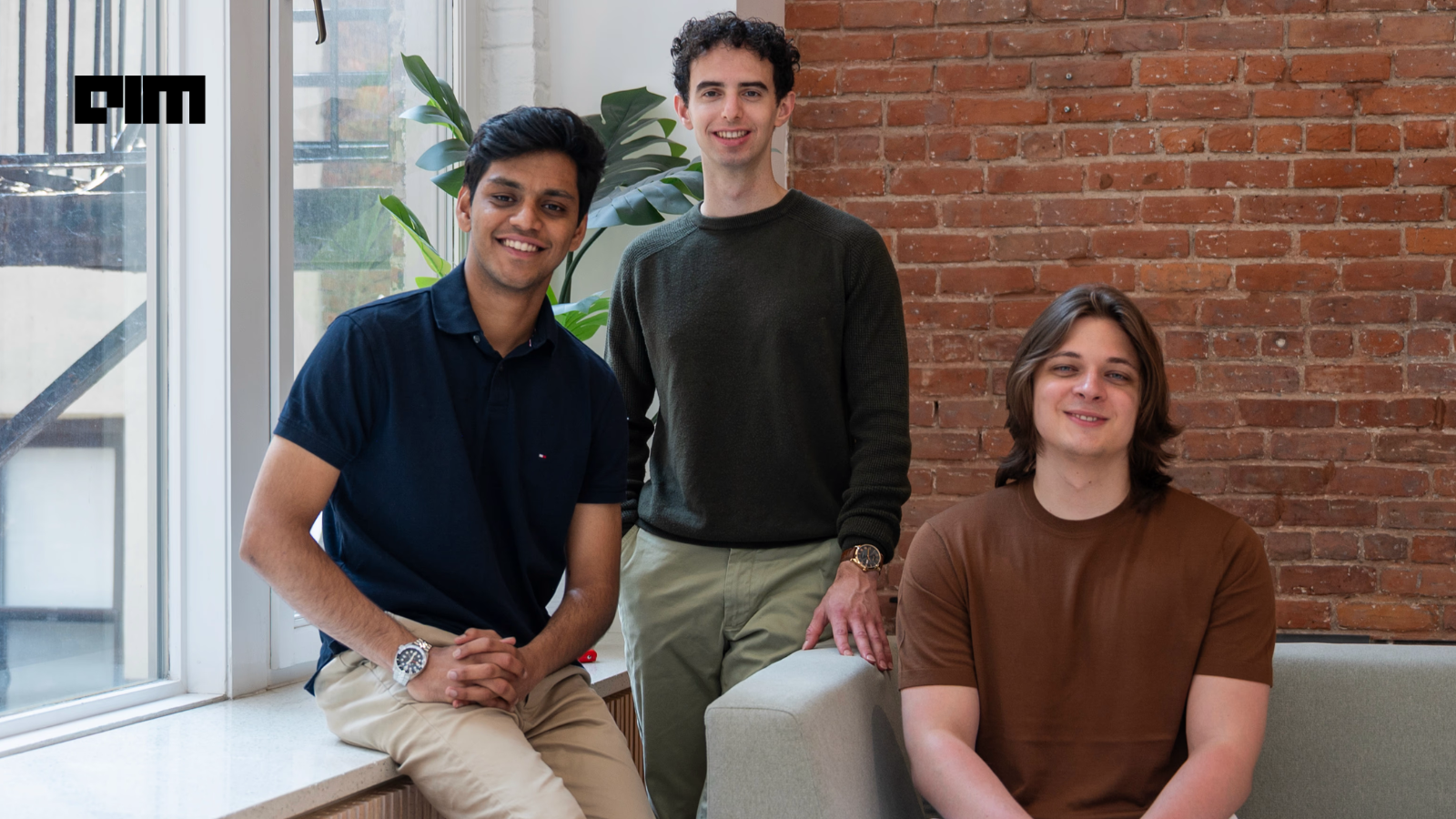When Joseph Parker talks about midsize law firms, he often thinks of the ones he grew up around in Richmond, Virginia: places where lawyers run into clients at football games or the grocery store. “These firms know their community and what they represent in it,” he wrote in a post announcing his company’s launch. “They deserve best-in-class AI tools.”
Parker, along with Rutvik Rau and Thomas Bueler-Faudree, co-founded August in 2024 to bring configurable AI software to midsize legal practices. The team met at Columbia University’s machine learning research lab and later worked across law, finance, and tech, including stints at Blackstone, DoorDash, and PayPal. That interdisciplinary background shaped August’s approach: build legal AI that adapts to each firm’s existing workflow, not the other way around.
On Tuesday, August announced it has raised $7 million in seed funding from NEA, Pear VC, and angel investors from OpenAI, Ramp, and Bain Capital Ventures, among others. The funding will be used to expand its modular AI framework, onboard more law firms, and hire across engineering, product, and legal roles.
A Platform for the Middle Market
Despite making up more than 50,000 practices worldwide and employing over 500,000 lawyers, midsize firms have historically been underserved by legal tech platforms built with large-firm infrastructure in mind. Many of those tools cater to AmLaw 100 firms with innovation departments and in-house IT teams. August aims to fill that gap with software that can be tailored to a firm’s size, jurisdiction, and document standards.
August’s platform revolves around modular AI agents that can be configured to match local statutes, disclosure requirements, and formatting preferences. These agents are trained on client-provided data, including templates and previous matters, during onboarding, which is handled jointly by August’s engineers and legal specialists. The company says all deployments can run behind a firm’s internal firewall to meet data residency and security requirements.
The result is a system that claims to closely emulate the reasoning of human attorneys. Document-heavy tasks such as contract review, due diligence, discovery preparation, and drafting are automated, freeing partners and associates to focus on higher-value work. August’s software is delivered through chat or email, and outputs are returned as formatted Word or PDF files.
One feature, Tabular Review, allows firms to compare thousands of contracts: NDAs, MSAs, and the like, side-by-side in seconds. Another tool helps generate and edit clauses directly in Microsoft Word. A third lets attorneys query documents for specific answers.
These capabilities are already being used across four continents. Hicksons, an Australian firm, reported reviewing 5,000 negligence files 90% faster after adopting August. ELP, a tax practice in India, cut due diligence time by 60%. A Florida litigation team used the platform to process 40,000 pages in a $100 million dispute, reportedly saving seven figures in outside counsel fees.
“We conducted a process to find the best option and we chose August because they had the most accurate platform and were the most willing to work with us to solve our specific challenges,” said David Fischl, Partner at Hicksons.
Backers from OpenAI, NEA, and Law Schools See a Strategic Opening
August’s funding round brings together several signals of high investor confidence in its market thesis and technical execution. NEA, which led the round alongside Pear VC, has a long track record backing enterprise software companies. Law schools also participated, as did angel investors with senior roles at OpenAI and Ramp.
For Pear VC’s Mar Hershenson, the firm’s appeal lies in its clear focus. “Midsize law firms account for more than a third of all practicing lawyers worldwide, yet August is the first AI platform built specifically for them,” she said in a statement.
While competitors like LexisNexis and Thomson Reuters offer AI tools for the legal sector, they are typically designed for larger firms or general-purpose use. August’s bet is that midsize firms are seeking not just automation, but compatibility with their way of working. Its customers often lack the resources or headcount to retrain staff on rigid new software, and the company’s onboarding model appears designed with that in mind.
The challenge now will be scaling without losing the firm-specific flexibility that differentiates the product. Rau and his co-founders are expanding the team and increasing geographic coverage, but the model depends on close collaboration between engineers and lawyers: something that doesn’t easily lend itself to volume-based growth.
Still, the founders see opportunity in meeting firms where they are. “These firms are excited about AI’s potential… but are overwhelmed with how to get started,” Rau wrote.











